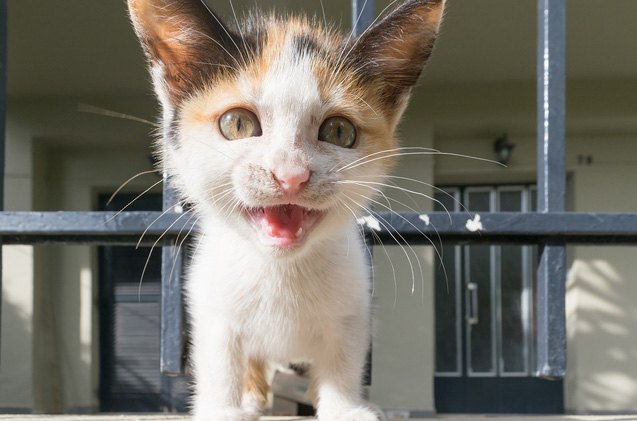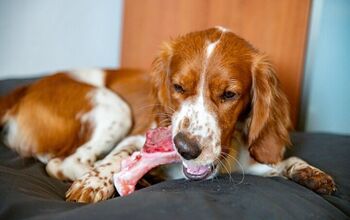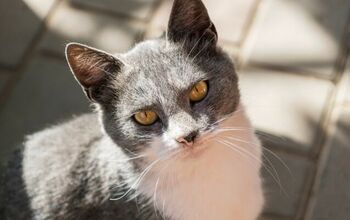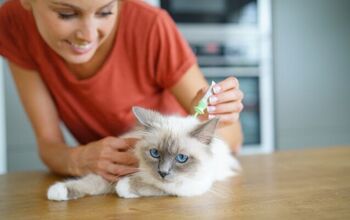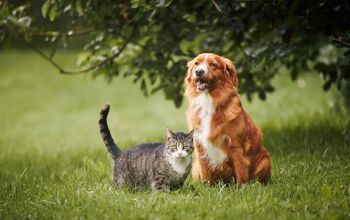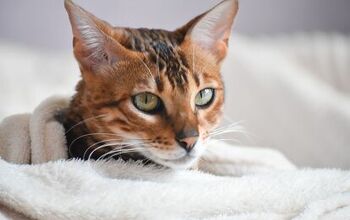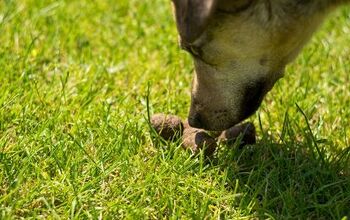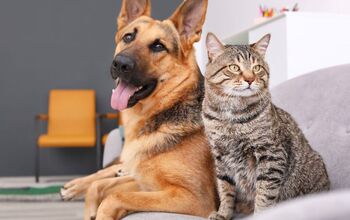6 Warning Signs Of Feline Heart Disease

Feline heart disease is serious, so it is really important to catch it in its earliest stages, if possible. The difficulty with doing that, though, is the fact that cats can mask symptoms really well, usually until a condition is quite advanced. Therefore, having your kitty examined by a vet annually is a good idea. But also being aware of the signs of feline heart disease will help you recognize when there’s a potential problem so that you can bring your cat to the vet promptly for a thorough exam.
Here’s a list of just some of the many symptoms that are associated with feline heart disease.
Difficulty Breathing
If your kitty starts to experience shortness of breath, if her breathing starts to become labored, or if she is breathing more rapidly than normal, be aware that these symptoms could be indicative of feline heart disease.
Related: Just What The Doctor Ordered: The Health Benefits Of Cats
Breathing problems that could be the result of heart disease may also produce sounds, such as crackles that can be described as rough, short, and snapping. Have your cat examined by a vet as soon as possible if she starts exhibiting these symptoms.
Weakness
As cats age, they tend to be less active, and this is normal. But if you notice that your cat is weaker or a lot less active than normal, it could be a sign of feline heart disease.
Related: What Is Feline Hyperthyroidism?
For example, if your cat is lethargic, unable to tolerate exertion or exercise, and not as playful as she typically used to be, or if she gets tired quite easily as a result of weakness and not just laziness, have her examined by a vet.
Fainting and Collapse
Collapse is another symptom of heart disease in cats, so if your kitty faints or collapses, it is imperative that you take her to the vet to be examined, as these are serious symptoms.
Abnormal Heart Sounds
A variety of heart sounds, such as murmurs, a muffled sound, or even a galloping rhythm, are all considered abnormal. This is one symptom that you will not be able to pinpoint on your own unless you have a stethoscope and you know what to listen for, so having your vet listen to your cat’s heart during an annual exam is the best way to pinpoint this problem before it escalates.
Decreased Appetite
Typically, a cat will enjoy eating and won’t lose his appetite suddenly for no apparent reason. A loss of appetite, which is also referred to as anorexia, can be a symptom of heart disease, though this could be a symptom of many other conditions as well.
To narrow down what could be causing your kitty to avoid a delicious meal, have her checked by a vet, especially if you have noticed other symptoms of heart disease.
Problems with the Hind Legs
Blood clots, which are referred to as thromboembolisms, often result from feline heart disease, and they can also be the first recognizable symptom.
Saddle thrombus occurs when a blood clot becomes lodged in the aorta and causes the blood supply to be cut off from the hind legs. This leads to pain, an inability to walk, paralysis in the hind legs that occurs suddenly, and limbs that feel cold. Another symptom is an absent or weak femoral pulse in one or both of your cat’s hind legs.
The Importance of a Vet Exam
Many of the symptoms of heart disease may also be caused by other conditions. No matter what, they are not normal feline behaviors, so the only way to know what is causing your kitty to be unwell is to have him checked by a veterinarian who can properly diagnose her and provide the right treatments.

Lisa Selvaggio is a freelance writer and editor, and our resident cats-pert, with certifications in pet nutrition and pet first aid. She enjoys producing content that helps people understand animals better so they can give their pets a safe and happy home.
More by Lisa Selvaggio



